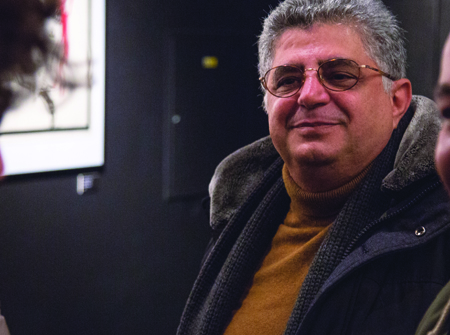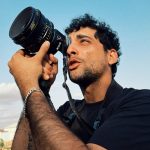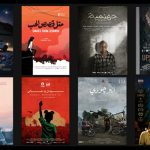The recently concluded Festival of Iranian Films in Prague screened several new films, including documentaries and features. Artistic Director Kaveh Daneshmand provided more details about this years edition, along with Kaveh Farnam, CEO of Dubai-based company Advanced Media, a long-term partner of the festival The Festival of Iranian Films took place in Prague from January […]

The recently concluded Festival of Iranian Films in Prague screened several new films, including documentaries and features. Artistic Director Kaveh Daneshmand provided more details about this years edition, along with Kaveh Farnam, CEO of Dubai-based company Advanced Media, a long-term partner of the festival
The Festival of Iranian Films took place in Prague from January 10-15, 2017. The festival was first launched in January 2012, with 410 seats in two screening halls in Kino Svetozor, a Prague arthouse dedicated to films.
In its six consecutive editions, the festival has attracted more than 26,000 visitors, including 80 international guests. Countries represented at the festival include Iran, the Czech Republic, Afghanistan, Egypt, the UK, France, Germany, South Africa and the US. More than 100 Iranian films have been presented at the festival in more than 300 screenings.
Kaveh Farnam, CEO of Advanced Media, the main sponsor and a partner of the film festival, says every year the festival represents a diverse collection of films.
The festival represents a cross-section of Iranian filmmakers from Iran as well as the Iranian diaspora. In fact, this year I noticed a number of entries from Iranian filmmakers based out of Iran. Many of the films focused on immigrant issues and dealt with life during the eight-year-long Iran-Iraq war.
The festival attracts film lovers from different parts of the world and offers a window into Iranian sensibility. Hadi Mohagheghs Immortal (Mamiro) was particularly memorable for me. Its a low-budget film but very impactful and leaves an indelible mark on the viewer. This film has also won many awards at various film festivals around the world, says Farnam.
Over the years, the festival has expanded to other venues in Prague, such as Kino Lucerna, Bio Oko and Gallery Langhans, and to other Czech cities such as Brno and Olomouc as well as to Bratislava, the capital of Slovakia.
Artistic Director, Kaveh Daneshmand, says the festival has generated a lot of interest among audiences, as is evident from the way it has grown in the last few years.
Iranian cinematography is indeed one of the most dynamic film industries of the world with over 200 fictional features, 3,000 shorts and 100 feature documentaries produced annually. A huge majority of these films are produced by independent filmmakers and with very little financial support. A large number of these films premiere in prestigious festivals every year.
The Festival of Iranian Films is organised by Media Nest, a production company based in Prague with direct connections to the film industries of the Czech Republic, Iran and the UAE. The festival is managed by an international team of film professionals while at the helm is Torang Daneshmand, President, followed by Kaveh Daneshmand, Artistic Director;
and Andrea Svobodova, Executive Director. The majority of the festival team are Czech film professionals and it is supported by the Czech Ministry of Culture as well as Prague Municipality.
Daneshmand says the festival is not limited to a few venues in Prague but takes place in various parts of the city to make it accessible to more audiences.
Throughout the year, the festival hosts several events focused on Iranian art. What began as a vehicle to present some of the best cinema from Iran has now evolved into a well-rounded event to showcase Iranian art. The festival now includes music, theatre, painting and graphic design as well.
Last year, the first Iranian-Czech feature film co-production, A Very Ordinary Citizen, premiered in Kino Lucerna.
This co-production was initiated in the fourth edition of the festival and within its industry programme. The film was supported by the Czech State Fund for Cinematography and marked the beginning of the collaborations between the Czech and Iranian film professionals. It has quickly opened the doors to more feature film co-productions, explains Daneshmand.
The festival has hosted notable figures of Czech, Iranian and Arab cinema such as Eva Zaoralova, Petr Koliha, Rakhshan Banietemad, Ali Mosaffar, Katerina Besserova, Rokhsareh Ghaemmaghami, Alaa Karkouti, Ronald Bergan, Siddiq Barmak and Nujoom Alghanem since its launch in 2012.
I must add here that the festival has received very positive support for its programme and structure from organisations such as Czech TV, People in Need and FAMU, as well as tremendous support from many reputable media partners such as Respekt, A2, Aktualne and National Geographic among others, concludes Daneshmand.














































































